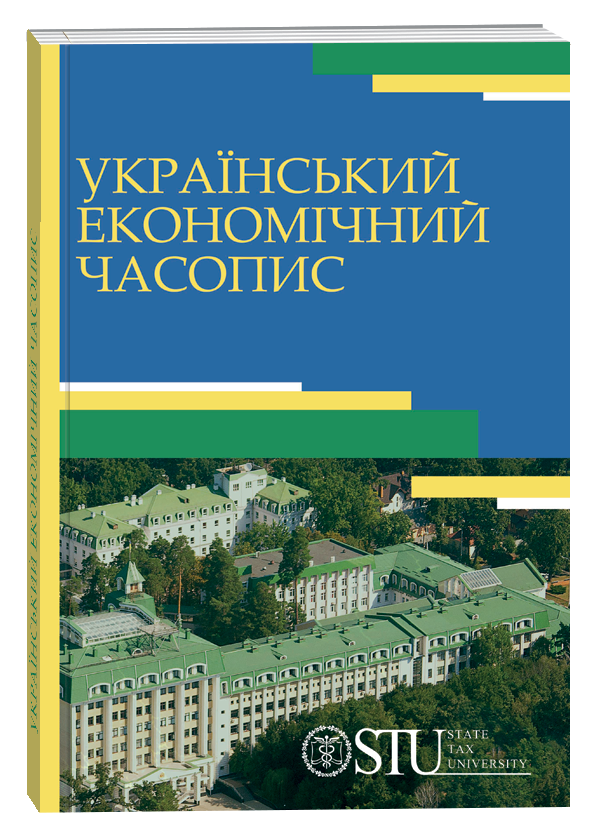HUMAN CAPITAL AND ITS IMPORTANCE IN THE CONTEXT OF ENSURING NATIONAL SECURITY: RISKS OF INVESTMENT UNDER WAR CONDITIONS
DOI:
https://doi.org/10.32782/2786-8273/2024-5-3Keywords:
investments, human capital, capital development, public administration, national security, martial lawAbstract
The purpose of the study is to study the features of investing in the development of human capital under martial law in the context of ensuring national security. Introduction. It has been proven that human capital plays an important role in diplomacy and international relations. Skilled diplomats and knowledgeable leaders are needed to navigate complex international environments and create alliances that enhance security. Methods. Scientists in emergency services, public health, and disaster response are needed to prepare for and respond to crises. It has been proven that human capital is the core of national security in many dimensions. Investments in human capital through education, training, and health provide the country with the tools needed to effectively address both persistent and emerging challenges to ensure national security. Human capital development has been proven to enhance a country's diplomatic influence by providing diplomats and international relations specialists with the necessary skills and knowledge. Results. Education promotes mutual understanding and tolerance between different groups in society, reducing the likelihood of inter-religious violence and social unrest. In addition, the development of leadership qualities through education contributes to the formation of the future generation of politicians who will be able to effectively manage and resolve internal and external conflicts. These include techniques for negotiating, understanding international law, and knowledge of the global economic and political environment. It has been established that the development of human capital is a strategic investment in the future security of the country. Conclusion. By focusing on enhancing the skills and knowledge of its population in various sectors, the country not only strengthens its own security mechanisms but also contributes to global stability. It has been determined that investing in human capital is not an arbitrary choice, but a necessary strategy for any state seeking to ensure a prosperous future. The benefits of such investments include improved economic performance, reduced social inequality and the creation of a strong political system. The key risks of investing in the development of human capital under martial law are highlighted.
References
Akbar, Salam, M., Arsyad, M., Rahmadanih. (2023). The role of human capital in strengthening horticultural agribusiness institutions: Evidence from structural equation modeling. International Journal of Sustainable Development and Planning, vol. 18, no. 9, pp. 2839–2846.
Khan, E.A., Quaddus, M. (2018). Dimensions of human capital and firm performance: Micro-firm context. IIMB Management Review, 30(3): pp. 229–241.
Cimen, M., Atan, O., Kaya, S., Deniz, S. (2017). Effect of human capital on organizational performance in healthcare organizations. Pressacademia, vol. 4(1): pp. 34–38.
Backman, M. (2014). Human capital in firms and regions: impact on firm productivity. Papers in Regional Science, vol. 93(3), pp. 557–575.
Mayo, A. (2000). The role of employee development in the growth of intellectual capital. Personnel Review, vol. 29(4): pp. 521–533.
Kryshtanovych, M., Filippova, V., Huba, M., Kartashova, O., Molnar, O. (2020). Evaluation of the implementation of the circular economy in EU countries in the context of sustainable development. Business: Theory and Practice, vol. 21(2): pp. 704–712.
Pasban, M., Nojedeh, S.H. (2016). A review of the role of human capital in the organization. Procedia - Social and Behavioral Sciences, 230: pp. 249–253.
Goos, M., Konings, J., & Vandeweyer, M. (2015). Employment growth in Europe: the roles of innovation, local job multipliers and institutions. Local Job Multipliers and Institutions. No. 15–10.
Podra, O., Kurii, L., Alkema, V., Levkiv, H., & Dorosh, O. (2020). Theoretical aspects of human capital formation through human potential migration redistribution and investment process. Business: Theory and Practice, vol. 21(1), pp. 71–82.
Knipprath, H., De Rick, K. (2015). How social and human capital predict participation in lifelong learning: A longitudinal data analysis. Adult Education Quarterly, 65(1): pp. 50–66.



